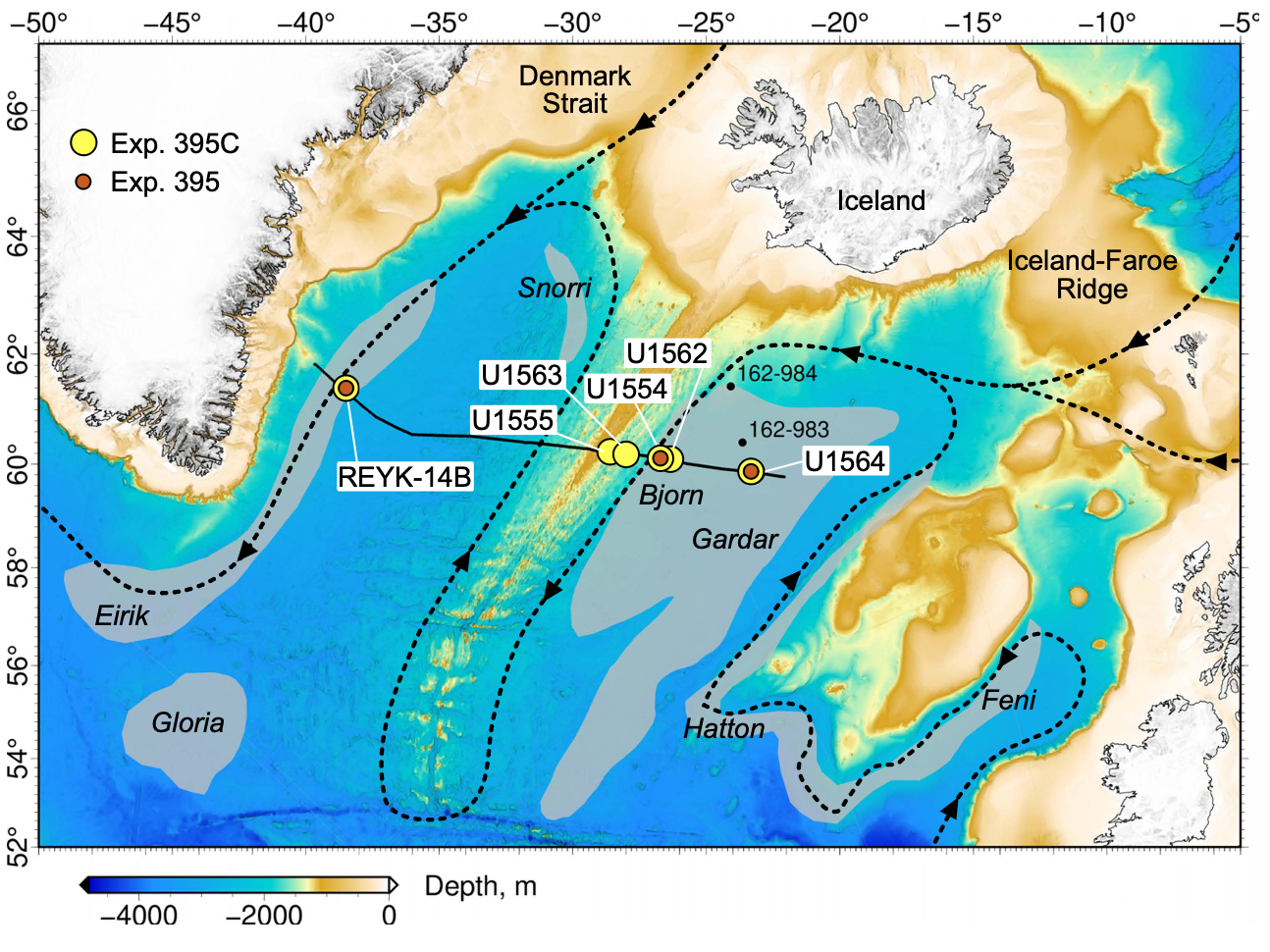Out to sea: Doctoral candidate joins ocean expedition in the far north
Halima Ibrahim seeks to shed light on how ocean dynamics can affect climate change

A doctoral candidate in geological sciences, Halima Ibrahim is headed out to sea — to the Reykjanes Ridge near Iceland and Greenland, to be exact.
It’s a long way from her native Nigeria, where she earned bachelor’s and master’s degrees in geology before coming to Binghamton.
“Throughout my academic journey, I developed a strong passion for addressing the pressing challenges of the 21st century, particularly in relation to the future impacts of anthropogenic global climate change and the mitigation of environmental hazards,” she said.
She decided to pursue her doctorate in the United States for access to cutting-edge research related to climate change. Looking for a program, she discovered research by Binghamton University Assistant Professor of Earth Sciences Molly Patterson that intrigued her and reached out via email; their discussions drew her to Binghamton, where Patterson is now her mentor.
Patterson introduced Ibrahim to the International Ocean Discovery Program (IODP) research expedition as a potential good fit, based on her background and research interests. She read up on IODP Expedition 400, which focused on the Greenland Ice Sheet.
“I was captivated by the potential for groundbreaking research and knew immediately that I wanted to be part of such a significant scientific endeavor,” Ibrahim said.
While her application for Expedition 400 wasn’t successful, she persisted, applying to three more that aligned with her research interests. Expedition 395, which runs from June 13 through August 12, took her on board.
While IDOP is an international program, Nigeria isn’t among the participating countries, Patterson noted. As an international student at Binghamton, Ibrahim is sailing under the banner of the United States Science Support Program.
The expedition site is located above one of the largest plume-ridge systems on the planet, where large amounts of hot material rise up from deep within the Earth’s mantle. This plume is thought to pulse every 3 to 8 million years, causing the Iceland-Faroe Ridge and the Denmark Strait to go up and down by hundreds of meters.
These height changes regulate the flow of cold water from the depths of the Norwegian Sea north of Iceland into the northern Atlantic Ocean. As a result, they help redistribute heat, which in turn has a significant impact on regional climate patterns, Ibrahim explained.
As a ship-based sedimentologist, Ibrahim will be responsible for carefully examining and then creating detailed descriptions of sediment cores obtained from drilling the ocean floor. On board, she will participate in shipboard science meetings and may also be assigned to hands-on core-sampling duties. She will also contribute to the expedition’s scientific reports, which document discoveries on the trip for the larger scientific community.
“The sediments that will be recovered during this expedition hold valuable information about the oceanic conditions influenced by the nearby deep-water gateways,” she said.
Ibrahim’s research explores the interaction between ice, ocean and climate dynamics in the Northern Hemisphere and the circulation of deep water in the north Atlantic Ocean. The goal: to see if the behavior of these factors has changed in response to climactic shifts and tectonic conditions.
To that end, she will compare results from this expedition with the records from the Antarctic ice margin during Expedition 374. By looking at findings from both polar regions, she hopes to shed light on the diverse mechanisms behind climate change.
“This research carries immense importance as it contributes to our ability to accurately predict climate change, understand sea level rise, decipher climate variability and comprehend ecosystem responses,” she said. “Such knowledge is indispensable in the development of effective mitigation and adaptation strategies to address the impacts of climate change and ensure the long-term sustainability of our planet.”
Patterson said that she is thrilled to see Ibrahim participate on the expedition.
“It is going to be exciting to see what records come from this expedition and how they help the scientific community advance our understanding of fundamental processes that help regulate Earth’s climate, especially for us here in the Northern Hemisphere,” she said. “Halima is extremely hardworking and thoughtful so I know she will contribute significantly toward meeting the expeditions’ research objectives and make lasting relationships with members of the international science community that will also be onboard and working on the expedition material from shore.”

